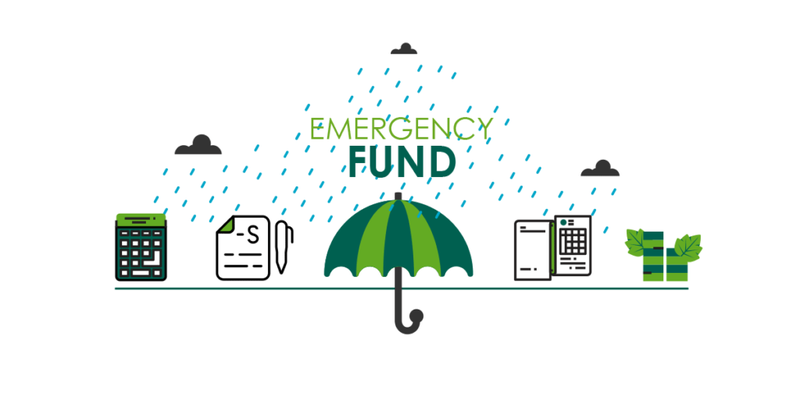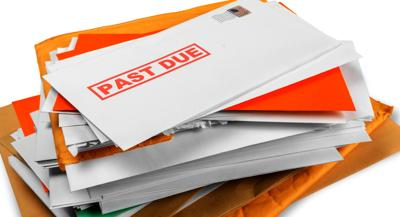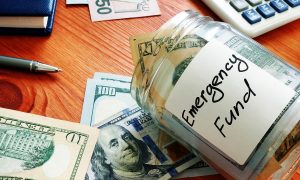If 2020 has taught us nothing else, it’s certainly taught us how important an emergency fund for your business can be. Fires, floods, riots, and a pandemic are just a few of the things that business owners have had to deal with in 2020.
And disasters, social unrest, and pandemics don’t care if you do everything right: Some things are just out of your control.
But some things are in your control, including your response to the emergency and the availability of emergency funds.

We’ll explain exactly what an emergency fund is, the benefits of having one, and how you can start building an emergency fund for your business today.
Overview: What is a business emergency fund?
Remember your mom telling you to put some money aside in case of any emergency? Well, it turns out that mom’s advice applies to businesses as well.
Every small business should have an emergency fund available. These funds can help bridge the gap between a business temporarily ceasing operations, and going out of business altogether. An emergency fund can also help you pay the bills during those times when you’re unable to offer your goods and services for sale.
As you’ll soon see, there are plenty of benefits and no downside to having an emergency fund available, so why not get started today?
3 benefits to building a business emergency fund
As much as we may try to plan for the future, life has a way of doing what it wants. There is no way to predict an emergency, a natural disaster, or a pandemic. But you can plan for it.
Aside from having a little less money to put back into your business, setting up an emergency fund offers a lot of benefits.
1. Security
You’ll have a lot fewer sleepless nights if you have an emergency fund available. Remember, emergencies come in all shapes and sizes and can be anything from a sudden illness to a fire or a pandemic. While the initial response to these, or any emergency, will vary, what won’t vary is the fact that you have an emergency fund available that provides you with that extra bit of security just when you need it.
2. You can still pay your bills
Life goes on, even when you have an emergency to deal with. That means that you still need to buy food, you still need to pay your rent or mortgage, and you still need to pay your electric bill, and your gas bill, and your internet service.
You still need to maintain your accounting software subscription and membership in professional organizations. An emergency fund allows you to do all of that while continuing to operate your business.

3. Your savings remain untouched
In times of emergency, small business owners are likely to deplete their personal funds to keep their businesses solvent. You can avoid depleting your savings by having an emergency fund available.
How to properly build up a business emergency fund
The hardest part of building up your business emergency fund is determining where those funds will come from. This can be particularly difficult if you’re a sole proprietor or a very small business operating on a razor-thin margin. However, in almost any case, you can find ways to cut expenses and then put those savings right into your emergency fund.
1. Determine the amount needed
If your business were unable to operate for a month, how much working capital would be needed to keep it (and you) going? $5,000? $10,000? More?
Whatever your answer, start saving with that goal in mind. And if you’re lucky enough to reach your savings goal quickly, by all means, don’t stop saving. Emergencies and disasters aren’t predictable, so don’t assume that your savings are enough.
2. Decide where to keep your emergency fund
If you already have a business bank account (and you should), you can use the same bank or credit union to open up a separate account for your emergency fund.
The initial account can be a savings or a checking account, but as your fund grows, you may want to consider putting some of the fund into a money market account or another type of account that may provide a larger return than a standard savings account. But make sure that you retain enough funds in your standard account so you can quickly access them immediately if disaster strikes.
3. Start depositing funds
Set a schedule for depositing funds and maintain that schedule. Whether it’s weekly, biweekly, or monthly, choose the schedule that’s right for your business and start depositing.
Best practices for having and using your business emergency fund
The best-case scenario for having an emergency fund for your business is you may never have to use it. But here are some emergency fund tips to help you get started, maintain, and use your emergency fund properly.
1. Start small
Even if you can only put away $50 a month to start, do so. While there may never be an optimum time to put money away for emergencies, saving even a little bit can help down the road. And when sales pick up or you have more disposable income, you can increase that amount.
Another way to start saving is to see if you can cut your business expenses. Get rid of those expensive subscriptions, drop your deluxe internet plan for the basic plan, and look around for new suppliers if prices keep jumping.
If you’re renting, you may want to look at a less expensive space or if you provide services, consider working out of your home. These money-saving measures can quickly translate into savings, which you can put in the bank for when they’re needed.
2. Consider depositing a percentage of your revenue
An easy way to tie savings to revenue is to choose to save a percentage of your net income each month. This way, your savings will increase when revenue does, and decrease when profits drop. This can be especially useful for seasonal businesses that commonly see increased revenue or slow times at a particular time of year.
3. Determine when your emergency fund is needed
Emergencies come in all shapes and sizes. When disaster strikes, you need to carefully manage your cash flow, which can help you determine when it’s time to dip into your rainy-day fund. While every business and every business owner is different, the following events may indicate it’s time to tap into your emergency fund:
• Illness: Whether it’s your illness or that of a key employee, it’s difficult to continue operating your business as usual when you’re missing crucial components.
• Natural disasters: Fires, floods, tornadoes, hurricanes, or other weather events may put you out of business for several weeks, making it a good time to use your emergency fund.
• Social unrest: While this may not have been on your radar before, events such as protests, riots, and the like can certainly prohibit you from operating your business.
• Pandemics: Again, before COVID-19, this was probably not at the top of your list of events that could negatively impact your business. Nevertheless, it’s here, and millions of businesses are scrambling to stay afloat. While an emergency fund may not have been enough to keep you in business long-term, it could certainly provide a stop-gap measure until additional assistance became available.
4. Consider other resources
If disaster does strike, consider other resources that can keep your business afloat. For example, in 2020, many small businesses had an emergency fund that was depleted quickly due to the length of the pandemic. If your fund isn’t enough to get you through an emergency, look at other funding options available for small businesses, which include the following.
• A line of credit: Having a line of credit can be of tremendous benefit. The key is to have the fund available before the emergency. If you have good credit, consider applying for a business line of credit from your financial institution. You may never need to use it, but it will be available should a disaster strike.
• Small Business Administration (SBA): The SBA offers numerous types of low-interest loans for businesses that have been impacted by disasters. The SBA also offers low-interest loans to businesses that haven’t been impacted by a disaster or other emergency.
• Friends and family: While this may be a last resort, asking your friends or family to invest in your business may also be an option. Adding a partner or two may help you weather the storm and also provide a much-needed influx of cash.
There’s no good reason not to have a business emergency fund
Like an emergency fund for your personal use, a business emergency fund serves the same purpose. Having a stash of cash to fall back on can mean the difference between a few lean weeks, and going out of business. Having emergency cash on hand is particularly important if your business is your sole income stream.
If you already have an emergency fund for your business, that’s great. But if not, there’s no better time to start one than right now.
The post Why You Need to Create an Emergency Fund for Your Business appeared first on The blueprint and is written by Mary Girsch-Bock
Original source: The blueprint






